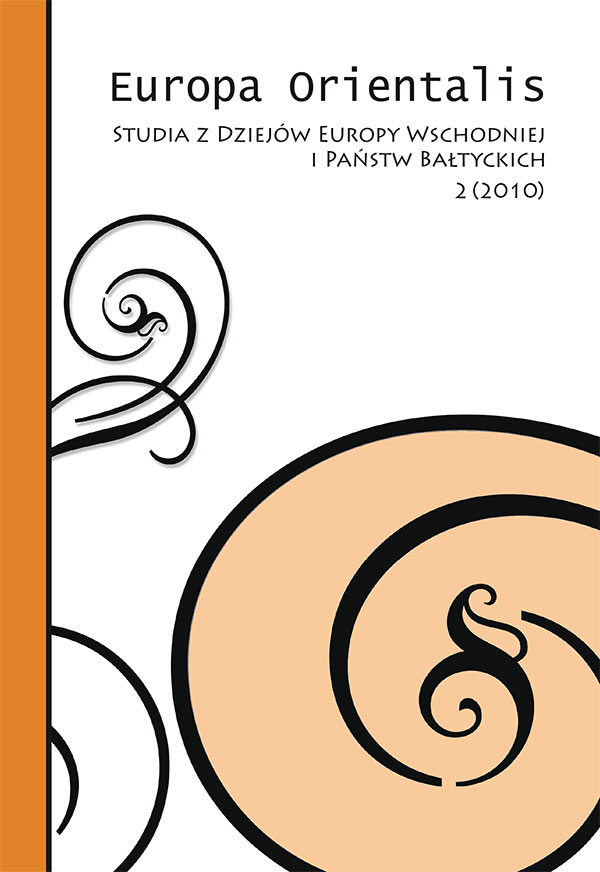Walki o Wilno w styczniu 1919 roku – początek wojny polsko-sowieckiej
DOI:
https://doi.org/10.12775/EO.2010.003Abstrakt
Neither in the Polish nor in the Russian (Soviet) historiography it is possible to find a definite answer to the question concerning the beginning of the Polish-Soviet war, which ended with signing of the peace treaty in Riga on March 18, 1921. Since the 1980s there have been many supporters of the thesis, that the war started in the middle of February 1919. Although some researchers mention Polish-Soviet fights in the Vilnius region at the beginning of January 1990, they diminish their importance, claiming that they constituted merely a “Vilnius incident.” However it was not an “incident” but the commencement of the Polish-Soviet war. In order to prove this, the author of this article examines events, which took place in the Vilnius region in the second half of 1918 and on the first days of January 1919. At the end of December, 1918 the most part of the German garrison left Vilnius. On January 1, the detachments of the Polish Armed Forces, started to take the city. On the afternoon of January 2 the whole Vilnius was occupied by Polish forces. Soviet commandment reacted quickly, sending parts of Divisions to dislodge forces from Vilnius. On the morning of January 4, 1919 the 1st Psków Rifle Regiment of the Red Army approached Naujoji Vilnia rail station. It turned out that the station was occupied by soldiers from the 1st Vilnius Uhlan’s Regiment of the Polish Armed Forces. A short fighting broke out and as the result the Poles retreated in the direction of Vilnius. One Polish soldier was taken prisoner. He was the first prisoner of war in the Polish-Soviet conflict. The battle, which took place on the morning of January 4, 1919 in the vicinity of Naujoji Vilnia, engaged soldiers from two regular armies – the Polish Armed Forces and the Red Army. It means that the Polish-Soviet war began at that moment.
Pobrania
Opublikowane
Jak cytować
Numer
Dział
Statystyki
Liczba wyświetleń i pobrań: 2154
Liczba cytowań: 0



